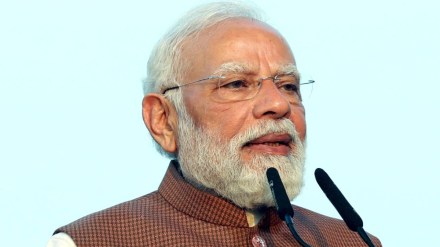Prime Minister Narendra Modi’s call for a national pledge to cast off a “colonial mindset” within the next decade will strike a chord with many who believe the time has come for Indians to assert not just political freedom but cognitive freedom: to question inherited assumptions, value our rootedness, and chart our future with more self-confidence.
Delivering the Sixth Ramnath Goenka Lecture on Monday, Modi urged citizens to “put the locks on” the Western mindset embedded in India since 1835 through Thomas Macaulay’s project of reshaping Indian thought by dismantling indigenous knowledge systems and enforcing colonial education.
The impulse behind the PM’s appeal is understandable. India must certainly examine the institutional and intellectual legacies it inherited and decide which ones deserve to remain, which need reform, and which ought to be discarded.
There is much to commend in this vision: Encouraging pride in one’s heritage and decentring the assumption that Western is automatically better can help revive confidence and creativity.
Questioning colonial legacies in our laws, administration, and symbols offers a chance to modernise and localise governance, and if the colonial mindset means privileging imported curricula and benchmarks, then a more plural, context-sensitive education policy may help meet the diverse realities of India. In short, this is not mere nostalgia but a call for substantive reorientation.
But the call to “shed the colonial mindset” also raises important questions and caveats. In the eagerness to redefine ourselves, India must resist the temptation to turn this project into a crusade. A wholesale rejection of everything associated with colonial rule risks replacing one form of unthinking mimicry with another form of unthinking negation.
While Macaulay should be justifiably denounced for his dismissive view of Indian knowledge systems, it is equally important to acknowledge that the English-language education introduced under colonial rule became instrumental in shaping India’s modern intellectual landscape. English created a shared linguistic bridge across a vast and diverse subcontinent.
It opened global windows to science, literature, and political thought. It helped produce the very nationalist leaders, thinkers, and reformers who went on to challenge British rule. The PM obviously understands that his views may be misinterpreted by some over-enthusiastic supporters.
That explains his assertion that he was not opposed to English but supportive of Indian languages. That’s the right way to go—historical critique must be separated from ideological zeal. If the government is serious about shedding colonial legacies, the priority should be modernising colonial-era laws, reforming a bureaucracy still built on 19th-century assumptions of control, and improving public institutions rather than merely repainting them.
Genuine decolonisation is hard, continuous, unglamorous work. A decade-long deadline to purge a “mindset” may sound motivational, but mindsets evolve organically, not through administrative timelines. Worse, rushed attempts may encourage an unhealthy cultural defensiveness—an instinct to see anything foreign as suspicious, inferior, or “colonial”.
India has always drawn strength from its openness. Our civilisation has absorbed influences from around the world, transforming them into something distinctly Indian. To make the PM’s appeal meaningful, India must approach decolonisation with maturity and reform institutions without rejecting their foundations blindly.
In short, we should avoid turning decolonisation into a moral purity test. India does not need a cultural pendulum swinging from one extreme to another. It needs a thoughtful, calibrated reinvention—one that embraces its civilisational depth without rejecting the global connections that have helped shape modern India.
